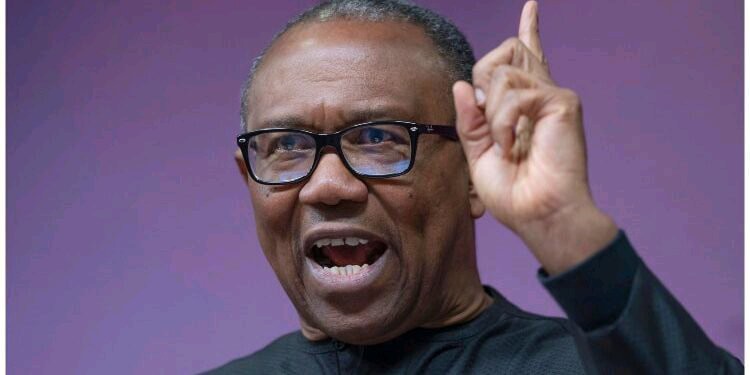Abuja, Nigeria
Former presidential candidate, Peter Obi, has sounded a powerful alarm over Nigeria’s escalating debt profile, warning that the nation’s total public debt could surge past ₦200 trillion by the end of 2025. Obi’s concerns come in the wake of the Senate’s recent approval of a new wave of borrowing, which he argues is pushing the country toward an unsustainable fiscal cliff.

In a series of statements, Obi, who was the presidential candidate for the Labour Party in the 2023 elections, has dissected the current government’s borrowing strategy, calling for greater fiscal discipline and a shift away from what he terms “reckless borrowing.” His warning is not just a political statement but a detailed analysis of the nation’s economic trajectory, referencing the latest figures from the Debt Management Office (DMO). According to Obi, with Nigeria’s existing public debt standing at approximately ₦149.39 trillion as of the first quarter of 2025, the newly approved loans of about ₦37.2 trillion will bring the total debt to around ₦187 trillion. He projects that with continued borrowing and the impact of a depreciating naira, the final figure for the year could easily exceed the ₦200 trillion mark.
ALSO READ: https://nationscuriosity.com/labour-party-faction-denies-anti-tinubu-pro/
The recent Senate approval of an external borrowing plan of over $21 billion, alongside a domestic bond issuance of ₦757 billion and other grants, has intensified the debate. While the government, through its spokespersons, insists that the loans are crucial for funding key infrastructure, social investments, and the 2025 Appropriation Act, Obi and other economic analysts remain skeptical. They point to a history of borrowed funds not being tied to productive investments with measurable outcomes, leading to a situation where the nation’s debt burden grows exponentially without corresponding economic growth.
The consequences of this rising debt are profound and far-reaching. Obi highlights that Nigeria is “accumulating very exponential levels of unsustainable debt with little or nothing to show for it in critical areas such as education, healthcare, electricity generation, and security.” This is a sentiment echoed by many Nigerians who feel the pinch of a weakening economy and a government that seems to be borrowing more to service existing debts, rather than to invest in projects that will generate revenue and improve the lives of its citizens. The rising debt-to-GDP ratio, which has already surpassed 50% according to some reports, is a critical metric that signals a potential fiscal crisis. While this ratio remains within the internationally recommended threshold for developing economies, the rapid pace of its increase is a major cause for concern.
A significant part of the challenge is the high cost of debt servicing. Reports have shown that a large percentage of the government’s revenue is now allocated to paying off debts, leaving little to fund essential services and capital projects. This creates a vicious cycle where the government must borrow more to fill budget deficits and meet its financial obligations, further increasing the debt burden. This “debt overhang” not only hinders economic growth by diverting resources but also makes the country more vulnerable to external shocks and currency devaluation.
Obi’s critique is not just about the numbers; it’s about the philosophy of governance. He argues that the country must return to a “disciplined and prudent economic management culture,” which involves cutting the cost of governance, blocking leakages, and building a productive economy. He believes that the current pattern of borrowing without accountability and transparency is mortgaging the future of Nigerian children and generations to come. The call for a re-evaluation of the country’s fiscal strategy is a powerful one, and it resonates with a public that is increasingly weary of economic hardship.
As the government moves forward with its borrowing plans, the debate between fiscal responsibility and developmental spending will likely intensify. The outcome of this debate and the government’s actions in the coming months will determine whether Nigeria is on a path to sustained economic growth or a deeper financial crisis. For now, Peter Obi’s warning stands as a stark reminder of the gravity of the nation’s financial situation and the urgent need for a change in direction.

